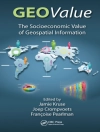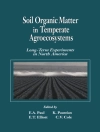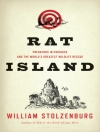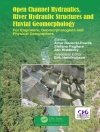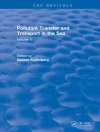This proceedings book focuses on advanced technologies to monitor and model urban soils, vegetation and climate, including internet of things, remote sensing, express and non-destructive techniques. The Smart and Sustainable Cities (SSC) conference is a regular event, organized each second year in RUDN University (Russia) and providing a multidisciplinary platform for scientists and practitioners in urban environmental monitoring, modeling, planning and management.
表中的内容
Tree health of Larix sibirica Ledeb. in the railway impact zone on Kola Peninsula.- The influence of soil quality on trees’ health in urban forest.- Ground penetrating radar tomography application to study of live tree trunks: case studies of defects detection.- Morphological and Macroanatomical Indicators of Long-Term and Current State of Trees of Quercus.- Carbon Dioxide Fluxes of an Urban Forest in Moscow.- Regulating Ecosystem Services in Russian cities: Can Urban Green Infrastructure Cope with Air Pollution and Heat Islands?.- Effects of Small Water Bodies on the Urban Heat Island and their Interaction with Urban Green Spaces in a Medium-Size City in Germany.- Assessment of Soil Properties and Tree Performance on Fountain Avenue and Pennsylvania Avenue Landfills in New York City.- Variability of Infiltration Rates at Selected Green Infrastructure Sites in New York City.- Assessment of soil heavy metal pollution by land use zones in small towns of the industrialized Arctic region, Russia.- Activity concentration of natural radionuclides and total heavy metals content in soils of urban agglomeration.- Metabolic adjustments in urban lawns in response to soil salinization.- Impact of Overgrown plant Deposit on physicochemical properties: Sod-podzolic soils during the last 60 years in the Central State Biosphere Forest Reserve, Western European Part of Russia.- Culturable Airborne Fungi of Urban, Forest and Coastal Areas of the Kola Peninsula.- Toxic Cyanobacteria in the arctic lakes: new environmental challenges. A case study.- Unfavorable impact of the urbanization on the immune antiviral protection in children: the relationship with recurrent respiratory infections.- Urbanization Effect on Children’s Autonomic Nervous System.- The Prevalence of Atopic Dermatitis among Children and Adults in Kazakhstan.- Some features of the key phenotypes of allergic rhinitis among childrenin a metropolis.- Playground arrangement for children with special health needs.- Environmental, social and economic potentials of urban protected areas: case study of Moscow, Russia.- Assessing the proposed volume of recreational ecosystem services: case study of Moscow’s urban protected areas.- National park «Elk Island» in the Moscow region’s green infrastructure.- The concept of ecosystem services in Russian urban legislation.- Environmental safety of urbanized territories as a developing institution for ensuring the vital interests of mankind.- Environmental Assessment of Thermal Energy Facilities Impact on Ecosystem Services for the Production of Oxygen in Urban Settlements.- Ecological assessment of rapeseed cultivation to improve chemically degraded urban Albic Luvisol.- Cultural Ecosystem Services of Urban Green Spaces. How and what people value in urban nature?.- Ecosystem services approach for landscaping project: the case of Metropolia Residential Complex.
关于作者
Viacheslav Vasenev is associate professor at the Department of Landscape Design and Sustainable Ecosystems and coordinator of the Smart Urban Nature research center in RUDN University. The main research directions include ecosystem services provided by urban soils and green infrastructures as a core to support sustainable urban development.
Elvira Dovletyarova is the Director of Agrarian Technological Institute RUDN University of Russia and an Associate Professor at the Department of Landscape Design and Sustainable Ecosystems. Dr. Dovletyarova is Vice-President of the Association of Landscape Architects of Russia and a Member of the Soil Science Society, named after V. V. Dokuchaev.
Riccardo Valentini is a full professor of Forest Ecology at the University of Tuscia, Italy. As a member of the IPCC board, he was awarded the joint Nobel Prize for Peace. He is also involved through IPCC and governmental bodies in developing policiesfor the global carbon cycle and the role of land use changes and forestry. He is coordinator of several EU projects aiming to understand and quantify the terrestrial carbon budget and greenhouse gases emissions. His expertise concerns the role of land use changes and forestry in the carbon cycle, biodiversity and bioenergy.
Zhongqi Cheng is a professor at the Department of Earth and Environmental Sciences, director of the Environmental Sciences Analytical Center at Brooklyn College, and a faculty member for the Earth and Environmental Sciences Ph.D. Program at the CUNY Graduate Center and the Macaulay Honors College. Dr. Cheng is co-founder of the NYC Urban Soils Institute, member of the Healthy Soils Heathy Communities Project, CALs in NYC, the Legacy Lead Coalition, research committee for WRF Biosolids Research, and Board of Trustees for the Mid Atlantic Biosolids Association.
Carlo Calfapietra is Director of the Institute of Researchon Terrestrial Ecosystems (IRET), National Research Council (CNR). Member of Czechglobe, Centre of Excellence for Studies on Climate Change of AVCR, Brno (Czech Republic). Expert of European Commission for Nature-Based Solutions. Fields of interest: Green infrastructure, urban forests, urban resilience and sustainability, plant ecophysiology in relation to stress, adaptation-mitigation to global change, air pollution, Carbon and GHG fluxes, VOC, forest plantations, forest fires and extreme environments.
Luis Inostroza is a researcher in the Geography institute of Ruhr University of Bochum. His studies integrate spatially explicit quantitative analysis, remote sensing and GIS to investigate the metabolism of socio-ecological systems and its links to ecological and economic functions, from local to global scales. Luis Inostroza is and editor of the journals Change and Adaptation in Social-ecological Systems (CASES) and Ecosystem services.
Michael Leuchner is a professor of Physical Geography and Climatology in RWTH University of Aachen. The research interests include atmospheric environmental research, energy and matter fluxes of terrestrial surfaces and the atmosphere, ecological climatology and ecohydrology.



